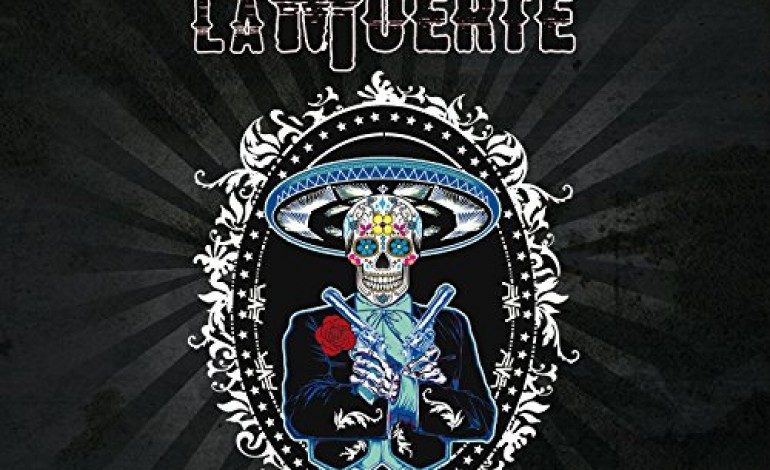

Ronnie James Dío De Los Muertos
The mind runs wild with premises at the title – De La Muerte. Will this self-titled debut be death metal with mariachi influences? Sonoran post-metal? Macabre conquistador gothic? Woe be onto those looking with anticipation toward any of the above. What emerges instead is a bizarre blend of NWOBH, speed, hair and power metal, hard rock, and Mexican influences. Unfortunately, the album is novel mostly in the wrong ways – coming across too corny and weird to get into seriously, and too restrained to enjoy as joyful metal overload.
Strangely enough, De La Muerte are actually Italian. Perhaps the theme of the album comes from an appreciation of spaghetti westerns, or just an interest in the culture of Mexico and the American southwest. Whatever the case, the opening song is called “Tequila Funeral,” and somewhat predictably, it features a bell-punctuated marching dirge being AMPLIFIED TO THE SKIES with BIG HEAVY METAL INSTRUMENTS. You’ll know whether to keep listening by whether you involuntarily pump your fist, or palm your face.
From there the mourning begins – deep grief over the lost heyday of bands like Judas Priest, Iron Maiden, King Diamond and others. A tearful homage to a simpler time, one where a heavy metal singer could really belt it out without drawing bored glares from eviler-than-thou death metal fans. The tributes are varied and textured, but not terribly original. There are dramatic lyrics, soaring vocals, melodic guitar solos and crisply executed drum rhythms. “Fallen Angel” and “Silver Bullet” sound like refugee transmissions from late 1980s metal radio. “Desaparecido” meanwhile, sounds like a motorcycle gang rallying song, with hairy-chested, beer-swilling background vocals and chugging guitars. “Die‘n’Roll rocking along briskly in the same red desert clay, brisk beneath the acrobat vocals of Gianluca Mastrangelo.
To be fair, De La Muerte sound like a really well-practiced tribute band – one paying tribute not just to one artist, but to a whole musical sub-zeitgeist. It’s impressive that they have nailed the sound so convincingly, especially from three decades and many miles away. Still, there is a sense of missed opportunities here. The band’s cover of “Malaguegna Salerosa” (one of over 200, apparently) is actually quite charming, metalling things up while preserving the waltzing rhythms and heartfelt sentiments characteristic to the song. One wishes the band had explored this crossover vein further, and inhabited the De La Muerte name a little more fully.
In the end De La Muerte is a lot weirder to think about than to listen to. The potential for this Italia-Mexican desert saga is left unrealized, pushed aside for fairly trad 1980s power metal worship. This is well-executed, but ultimately only useful for generating a certain nostalgia. Nonetheless, De La Muerte wear the boots and studs well. It would be a natural next step for them to follow their sonic forebears, and start work on a big, narratively ambitious concept album of their own unique devising.
